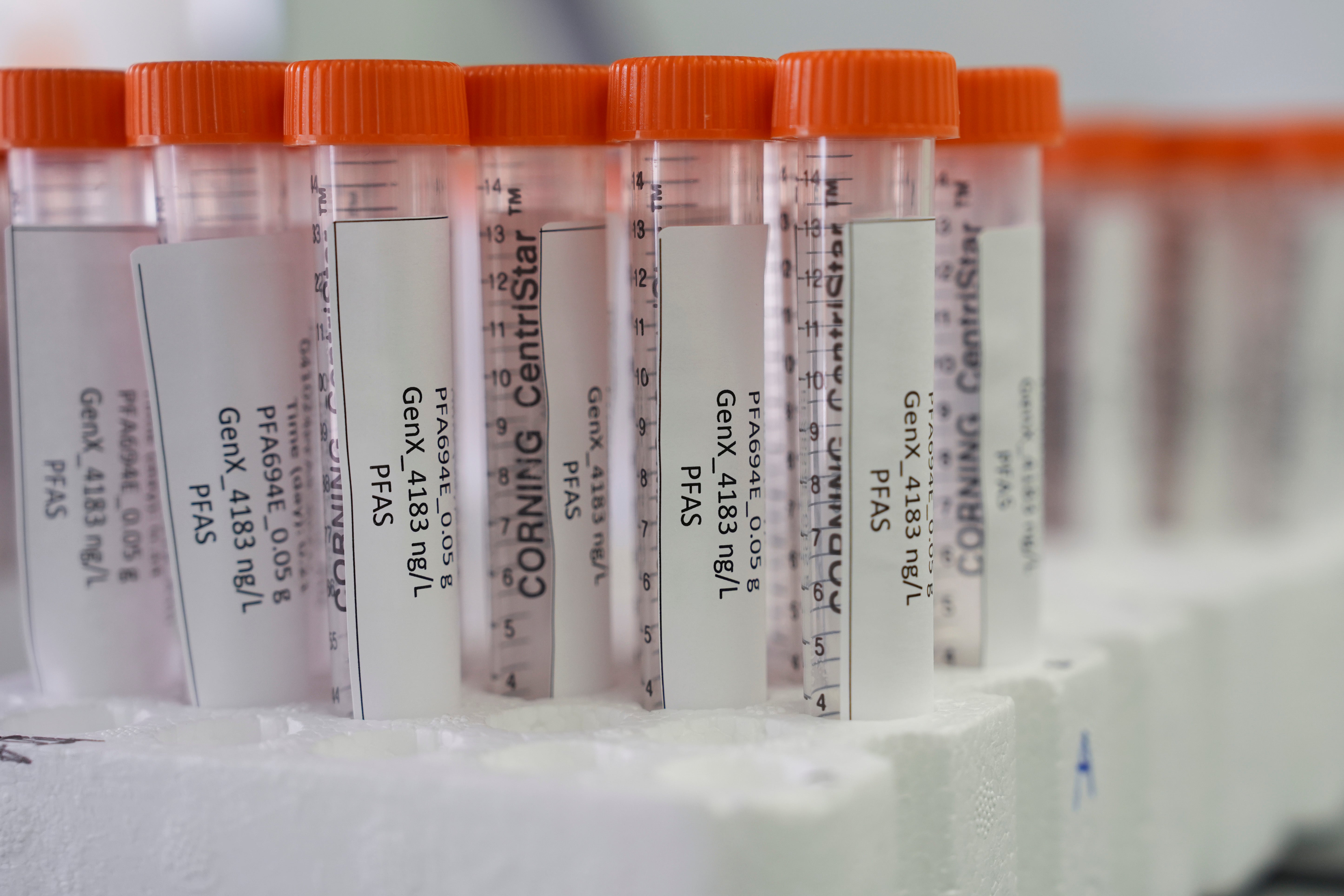ARTICLE AD BOX
In part of the Trump administration’s continued push to overturn the actions of its predecessors, the Environmental Protection Agency said Wednesday that it would weaken Biden-era standards limiting the pollution of potentially-toxic “forever chemicals” in U.S. drinking water sources.
While it plans to maintain standards for two common chemicals, known and likely carcinogens PFOA and PFO, the agency said it would rescind the regulations and reconsider regulatory determinations for PFHxS, PFNA, HFPO-DA, and the mixture of these three plus PFBS “to ensure that the determinations and any resulting drinking water regulation follow the legal process laid out in the Safe Drinking Water Act.”
“We are on a path to uphold the agency’s nationwide standards to protect Americans from PFOA and PFOS in their water. At the same time, we will work to provide common-sense flexibility in the form of additional time for compliance. This will support water systems across the country, including small systems in rural communities, as they work to address these contaminants,” EPA Administrator Zeldin said in a statement. “EPA will also continue to use its regulatory and enforcement tools to hold polluters accountable.”
In response to a request for comment, the agency pointed The Independent to its public statement. The actions were first reported by The Washington Post.

Forever chemicals are widely used, long-lasting chemicals, components of which break down very slowly over time. Often used to make kitchenware and to-go containers, there are thousands of different per- and polyfluoroalkyl, or PFAS, forever chemicals.
Because of their persistence in the air, water, and soil, many are found in the blood of animals and people across the world. They widely contaminate drinking water, and exposure to these chemicals may be linked to harmful health effects, including cancer and reproductive harm. Tens of millions of Americans are exposed.
Due to these impacts, the Biden administration announced the first national drinking water standard to protect communities from exposure to these chemicals. Before facing legal challenges from water utilities, former Administrator Michael Regan said the rule was the most important action the EPA had ever taken on PFAS, and that it would change lives.
The rule set standards for PFOA and PFOS at 4 parts per trillion, which is effectively the lowest level at which they can be reliably detected. Now, the agency says it will extend compliance deadlines for PFOA and PFOS and establish a federal exemption framework, giving utilities two extra years to comply and treat for the chemicals.
In March, the White House announced an end to the use of paper straws, detailing the dangers of PFAS.
The move is one of many recent reversals at the agency, which critics say are opposite to its mission and will harm Americans’ health and environment. That includes a U-turn on fighting climate change.

While the EPA had previously said its efforts were aimed at “strengthening the science,” environmentalists say otherwise.
“It’s too bad. We know these chemicals are dangerous. We know their adverse health effects. The more we study them, the more problems we face,” Linda Birnbaum, the former director of the National Institute of Environmental Health Sciences, told The Washington Post ahead of the announcement, reacting to the reported decision to remove restrictions on the known substitutions for PFOS and PFOA. “If anything, the science is stronger today that it was a year or two years ago.”
“More than 100 million people are drinking water contaminated with ‘forever chemicals,’ which can cause cancer, harm fetuses and kids and pose other health hazards. But now the administration is going to toss out most of these long-sought protections and allow this contamination to continue unabated all at the behest of the chemical industry and water utilities,” Erik Olson, a senior strategic director of health at the nonprofit Natural Resources Defense Council, said in a statement.
“EPA’s plan to retain but delay standards for two legacy 'forever chemicals' may offer modest consolation to some, but throwing out protections against four others will be devastating,” he added. “The law is very clear that the EPA can't repeal or weaken the drinking water standard. This action is not only harmful, it’s illegal.”









 English (US) ·
English (US) ·